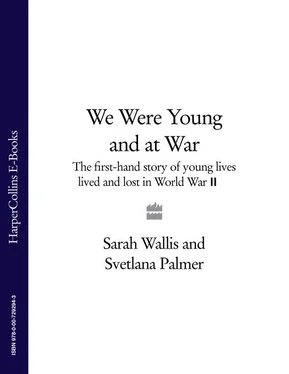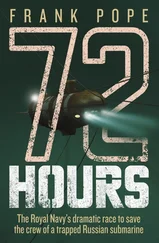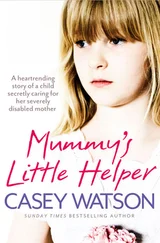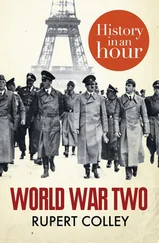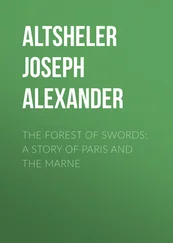Łódź has been occupied. It’s been quiet all day today, too quiet. This afternoon I’m sitting in the park drawing a portrait of one of the girls when suddenly there’s terrifying news. Łódź has surrendered! German patrols are in Piotrkowska Street. Fear, surprise…surrendered without a fight? Perhaps it’s just a tactical manoeuvre. We’ll see. In the meantime all talk has stopped, the streets are empty, faces and hearts have hardened into stern severity and hatred. Mr Grabiński comes back from town and describes how the local Germans have been greeting their compatriots. The Grand Hotel, where the generals are to stay, is bedecked with garlands of flowers. Civilians—boys and girls—are jumping into military cars with the joyous cry ‘Heil Hitler!’, speaking German loudly in the streets. People who used to be quiet, patriotic and civil are now showing their true faces. The street lamps have been switched back on in the evening. No danger of air raids now.
That night, as German troops were welcomed with fireworks and dancing in Łódź, hundreds of Jews were burnt to death in a Bedzin synagogue, just over 100 miles south of the city. Dozens of Polish towns were in flames, but despite German ‘cleansing measures’ against thousands of Poles and Jews, Britain and France ruled out coming to Poland’s immediate assistance, themselves under pressure to mobilize for war.
In the morning an announcement was posted in Polish and German (German first!) calling for calm when the German troops enter the city. Signed: Citizens’ Committee of Łódź. Later, I went a bit further out to watch the troops arrive. Lots of cars, the soldiers look quite ordinary, their uniforms different from the Polish ones though—they are steel green. Their faces are self-confident, swashbuckling. The conquerors! A car full of high-ranking officers with severe faces passes by, quick as lightning. People are quiet, they look on impassively. Hush! We go back to our blocks and sit around on benches, talking and joking. What the heck!
Rosh Hashanah holiday [the day before Jewish New Year] is sad, drab, same as any other day. The same dry bread with a small piece of herring (only the herring makes it different from any other day). The order came today that the shops are to be open tomorrow. For Jews, this is the worst blow for a long time—the shops open on Rosh Hashanah! And the synagogues are to stay closed. Nowhere to pray together for mercy, nothing. All our basic freedoms are being taken away from us. I’m not a traditionalist and I always thought it was liberating to duck out of prayers, but these orders are painful to Jewish people. Now I understand what faith gives to believers—they are at peace, serene. To take away a man’s only consolation, his faith, and to forbid a life-affirming religion, it’s an unforgivable crime. The Jewish people won’t let Hitler get away with it. Our revenge will be terrible.
This is the first time mum went to buy bread and came back without. She gets up at five a.m. and stands in the queue until seven, when the bakery opens and gives out one-kilo loaves. That’s how it’s been for a week now. Today there was no more bread when it was her turn. Maybe one has to start queuing at one in the morning. In town, Hitler’s agents take Jewish people out of the food queues, so that poor Jews who have no [Polish] maid are condemned to death from starvation. Twentieth-century German humanitarianism! The Rabinowiczes and their neighbours came back today from their wanderings. They look terrible. Their two sons were on another cart and they haven’t come back. Nobody knows where they are. They talk of exchanges of fire, searching for places to sleep, going on foot for miles, dangers and so on. It makes my flesh creep. There are funny moments too. Humour can be found anywhere. Laughter in the midst of calamity.
With Warsaw itself under continuous artillery fire and merciless aerial bombing, after two weeks on the road Edward’s family decided to head home. Coming across a quiet village south of the capital, they stopped for a few days of rest.
Last night the Germans occupied all the places we have abandoned. They sent their cars in first, which moved pretty fast along the pavements so as to avoid the sand we put on the roads to slow them down.
They’ve set up camp next to the forest, surrounded by machine guns and cars. Their uniforms are made out of a greyish-green material. Their helmets are very smooth. They wear swastikas and eagles and they are in black and white, the German national colours.
People in the local villages have changed sides quick as a flash; they’ve turned German overnight. They bow when they see a German officer in the street. The Germans look down on them with scorn, but they don’t seem to mind. German soldiers go round asking for cigarettes and tobacco, and the village girls flirt with them, dressed up in their Sunday best. I try to avoid seeing any of this, so I sleep in the stables.
We went to bed in our clothes but couldn’t sleep because of the shooting. By the morning German planes had pushed our infantry back into the forest. They shot at our soldiers and civilians shot at them too. It’s all a complete mess. In the evening I decided I had to get some sleep. I was too tired to care about what might happen.
While Edward missed the events of that day, in Łódź, Dawid recorded what news he could, but admitted to being confused.
It turned out today that our gymnasium has actually been disbanded. Gymnasium Number 1 is being merged with the girls’ school. The buildings have been occupied. I feel despair overtaking me. In the afternoon I was out walking with [my friend] Jadzia when Marek ran up to us with strange, terrifying news. Russia has broken the non-aggression pact with Poland and has occupied our eastern areas. We still don’t have the details. I couldn’t understand anything at first. Later on, German, Soviet, English and Polish radio gradually clarified the situation. The Soviet government has mobilized its troops as it felt threatened (so much for their non-aggression pact with the Germans). Since there is no Polish government in Warsaw any more, Russia feels obliged to defend Belarus and the Ukraine against Germany. The Polish High Command has declared that it will not fight with Russia (so this act of aggression is clearly convenient in spite of everything) but will concentrate all its forces against the Germans. And the English radio commented that evidently the Russian army will cooperate with the Polish army. So what’s going on? Could it be that Russia has remembered that Nazism is its worst enemy, after all?
Contrary to Dawid’s hopes, Soviet troops began to occupy eastern Poland in accordance with the secret addendum to the German-Soviet Non-Aggression Pact signed in August 1939. As Poland was split into two spheres of influence, all the Polish Army’s hopes of regrouping in the east for another offensive were dashed. In occupied Łódź, Dawid enjoyed the return of at least some signs of normality.
I went to school by tram in a clean uniform (I had to walk back, and will have to walk tomorrow, no money for the tram). There are fifteen girls and eighteen boys—from both gymnasia. We had three lessons, same as yesterday. Revision, mostly. We didn’t get any reports. There were a few new teachers, not many. We don’t know if we are going to be taught with the girls or separately, because it’s a squeeze. If separately, we’ll probably be the afternoon shift.
Читать дальше
